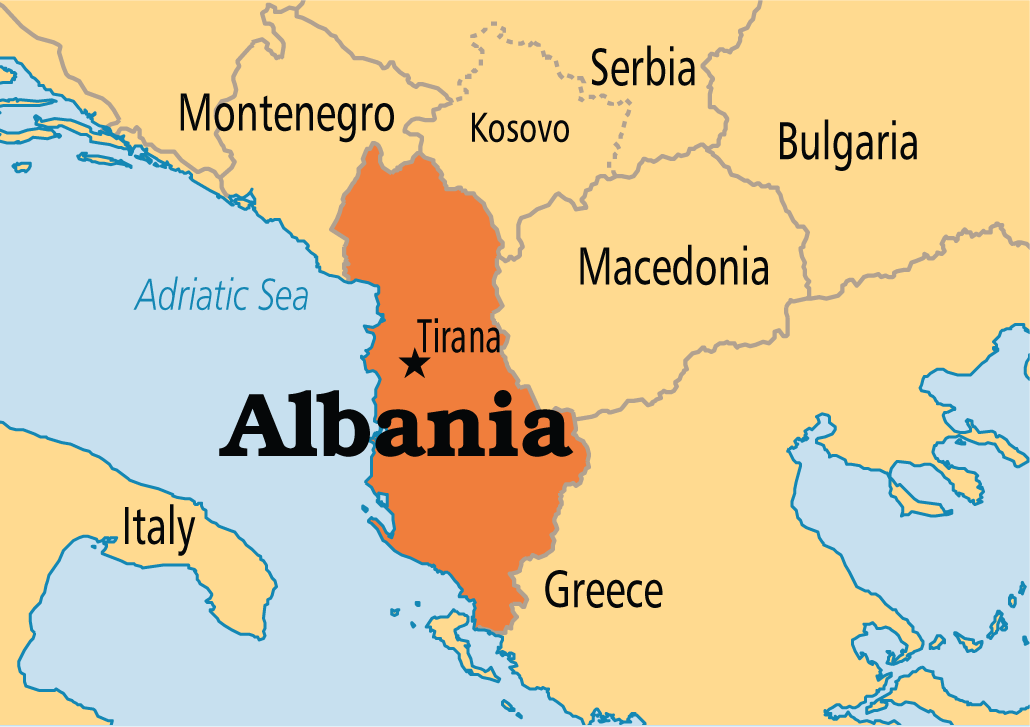Since the fall of communism, the US has supported Albania financially but also in the political scene. Their ambassadors have always been quite present in our political scene and such involvement has sometimes been unusual considering their diplomatic position. Also, Albania’s attempts to integrate into the European Union and each moves that the country has done in order to resemble western governments and to become more integrated. Some may wonder why the US is so interested in such a country that is so small and so weak in every aspect. Why would they care about a very small developing country in the Balkans that the overwhelming majority of Americans don’t even know its existence! As an Albanian citizen, I have also been questioning US involvement in our affairs and while some would say: ‘they do it because they are good and generous and care about us’, I would say that the reasons are much more than that.
First, I’d like to say that those who consider us ‘weak’ should remember that Albanians under the great guide of Skanderbeg, our national hero, have held the Ottoman Empire and not have ‘permitted’ them to enter Western Europe. The West has much to thank them for that. Otherwise, Islam, the greatest fear for Western Europe of the time, would have been spread and the Ottoman Empire would have created an empire that could have perhaps changed the course of history.
Albania has a very strategical geographical position, which has historically been important. It connects the West with the East and has a wide exit to the sea. Therefore, whoever has control over the area, will have numerous economic opportunities and benefits but political benefits as well because will contain influences that come from the East. Since Albania is a country with quite a vulnerable political situation at a domestic level, it could be quite sensitive towards external influences that might not be favorable for the US. To prevent the past from being repeated, the US has created a strong influence which has reached a point in which it can’t be easily broken. In fact, statistics show Albania is the second most pro-United States country in Europe (Kosovo is number 1) also due to the gratitude that is still felt and will continue to be felt for the intervention in the Kosovo War and supporting the establishment of the state of Kosovo.
But perhaps the most crucial reason why the US has a strong presence in Albania is related to the ‘forbidden dream’ of Greater Albania that is still very present among this generation. Although this dream is not necessarily related to any special patriotic sentiment that Albanians might have, it still has quite a huge presence due to the fact that except for Kosovo, Albania is surrounded by countries with which the relationship historically has not been the best. There are still many issues related to the borders because in the London Conference of 1913 the Great Powers left out many lands that were ethnically Albanian. It is politically impossible today to have those lands back today, but many Albanians would wish to retake them. In some way, these feelings have to be suppressed or at least be controlled; therefore the US and the EU as well play the role of the mediator.
read independence of Catalonia: will it get out of control?
As a country that is still in economic transition, Albania can easily be influenced by whichever power want to invest in it. There have been several foreign investments in the past decade such as those made by Turkish business, but perhaps what could be considered as the most urgent, is the influence that might be coming from the East, Russia. Since Albania and Kosovo are the most supportive countries of US in the Balkans, the US should be careful not to lose these ties and let them fall under an influence that might not be beneficial for them. The Balkans are considered a Hot Spot, therefore losing the leverage over them would be overwhelming for the foreign relations in general.
writer
Rina Cakrani
Whitman College, Washington, United States.
